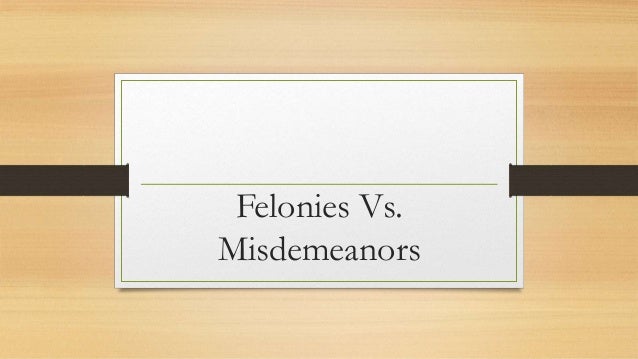In California, crimes are classified as either misdemeanors or felonies depending on the seriousness of the offense. Felonies and misdemeanors carry different penalties, with the legal consequences of felonies being more severe than those associated with misdemeanors. Unfortunately, however, many people who have been charged with crimes in California, particularly those not represented by experienced California legal counsel, do not have a good understanding of the difference between these two classifications. Below is an overview of the differences between misdemeanors and felonies in California.
Misdemeanors in California
Misdemeanors in California are considered less serious than felonies. Misdemeanor crimes are punishable by up to one year in jail and a fine of up to $1,000. While many states group misdemeanors by class, California does things differently. When determining how a misdemeanor crime will be sentenced, courts in California instead use statutory guidelines to make sentencing decisions. In addition, if aggravating circumstances are present, certain misdemeanors in California may be escalated to felony status.
Felonies in California
As noted above, felonies are more serious offenses than misdemeanors, and their potential consequences reflect this fact. Felonies in California are punishable by, at a minimum, one year in state prison. However, certain extreme felony crimes are punishable by life imprisonment or the death penalty. And while many states have fixed punishments for specific felony crimes, California felony sentences are chosen on a case-by-case basis based on statutory sentencing guidelines.

Three Strikes Law
In California, certain serious felony offenses result in a strike on the offending individual’s record. Under California’s three strikes law, when a person is convicted of a second serious felony, he or she faces double the sentence for the second felony and is required to serve at least 80 percent of his or her sentence before being eligible for release. And if a person is convicted of a third serious felony, he or she faces a possible sentence of 25 years to life in prison without the possibility of parole.
Statute of Limitations
Nearly all crimes have a statutorily mandated time limit within which they must be prosecuted. This time limit is called the statute of limitations. A number of states have a statute of limitations for felonies and a statute of limitations for misdemeanors. California, however, sets such time limits on a crime-by-crime basis.
San Diego Criminal Defense Attorneys
Due to the potential consequences involved, it is important that anyone charged with a misdemeanor or felony in San Diego, California, seek the guidance of an experienced criminal defense attorney. At the Law Offices of Kerry L. Armstrong, our experienced criminal defense attorneys provide all of our clients with expert legal guidance in order to achieve the most favorable results possible in both misdemeanor and felony cases. The talent and experience of our San Diego, California, attorneys ensure that our clients’ misdemeanor and felony cases are handled expertly and with the utmost care. If you or a loved one is facing misdemeanor or felony charges in California, please contact us immediately for a free consultation.


